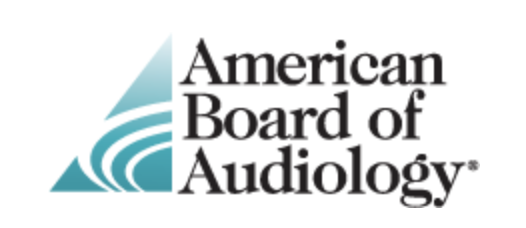
Certificate Holder—Audiology Preceptor (CH-AP)
CH-AP is an online self-study program that teaches preceptors how to facilitate an AuD student’s transition from novice clinician to competent independent professional. The CH-AP program helps ensure that each student receives standardized training and approach measuring performance from a standardized point of view.
-
- Review the CH-AP Participant Handbook (includes eligibility, fees, training curriculum information, etc.).
-
- Read the Assessment-Based Code of Ethics.
-
- Review the informational PowerPoint on the development of CH-AP.
Certificate Holder—Tinnitus Management (CH-TM)
CH-TM is a comprehensive tinnitus management education program providing essential information for assessing and managing patients with tinnitus or decreased sound tolerance. CH-TM is an assessment-based certificate program offered in a combination video and interactive online self-study program.
-
- Review the CH-TM Participant Handbook (includes eligibility, fees, training curriculum information, etc).
-
- Read the Assessment-Based Code of Ethics.
Module 1– Tinnitus Definitions & Theoretical Foundations, identifies the different types and characteristics of tinnitus, its prevalence in the US and globally, and different theories of its etiology.
Module 2 – Management of the Patient with Tinnitus, provides a snapshot of the experience of tinnitus, along with a broad synopsis of assessment approaches, intervention techniques, and practice management considerations.
Module 3 – Business Management Considerations, discusses the unique demands and business factors associated with integrating tinnitus and DST services into an audiology practice.
Module 4 – Audiological Evaluation of the Patient with Tinnitus, teaches how to assess the results of a comprehensive audiological evaluation as a basis for clinical decision-making for a patient with tinnitus.
Module 5 – Tinnitus Intervention Techniques reviews varied approaches that may be used as intervention for patients with tinnitus, including indications for use, benefits, and limitations of each technique.
Module 6 – Management Plan for the Patient with Tinnitus, teaches how to educate and collaborate with patients and other providers to develop a management plan for a patient with tinnitus.
Module 7 – Management of the Patient with Decreased Sound Tolerance summarizes the characteristics and prevalence of DST along with assessment approaches, treatment techniques, and practice management considerations for these patients
About the American Board of Audiology Certificate Programs
Assessment-based certificate programs build capacity and recognition of a specialty area of practice or a set of skills. They provide instruction and training (non-degree granting) and assess mastery of the intended learning outcomes.
Recent Posts
ASLP-IC Readies for Rollout: Here’s What You Need to Know
The Audiology and Speech-Language Pathology Interstate Compact (ASLP-IC) continues to move toward full implementation, expanding opportunities for audiologists and speech-language pathologists to practice across state…
How Do Animals Perceive Music?
Music can be defined as vocal, instrumental, or mechanical sounds, with rhythm, melody or harmony, and often, an expression of human emotion. Music can transcend…
‘Eye’ on Health: AI Detects Dizziness and Balance Disorders Remotely
Interesting research led by audiologist Ali Danesh, PhD, at Florida Atlantic University (FAU) helped develop a novel, proof-of-concept tool to help identify nystagmus using a…


